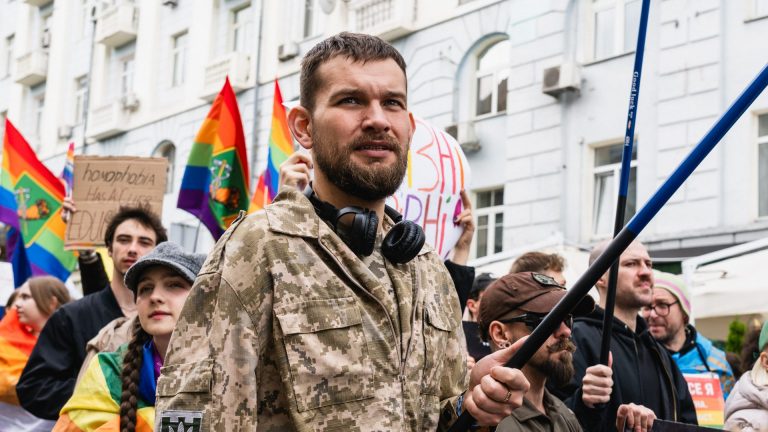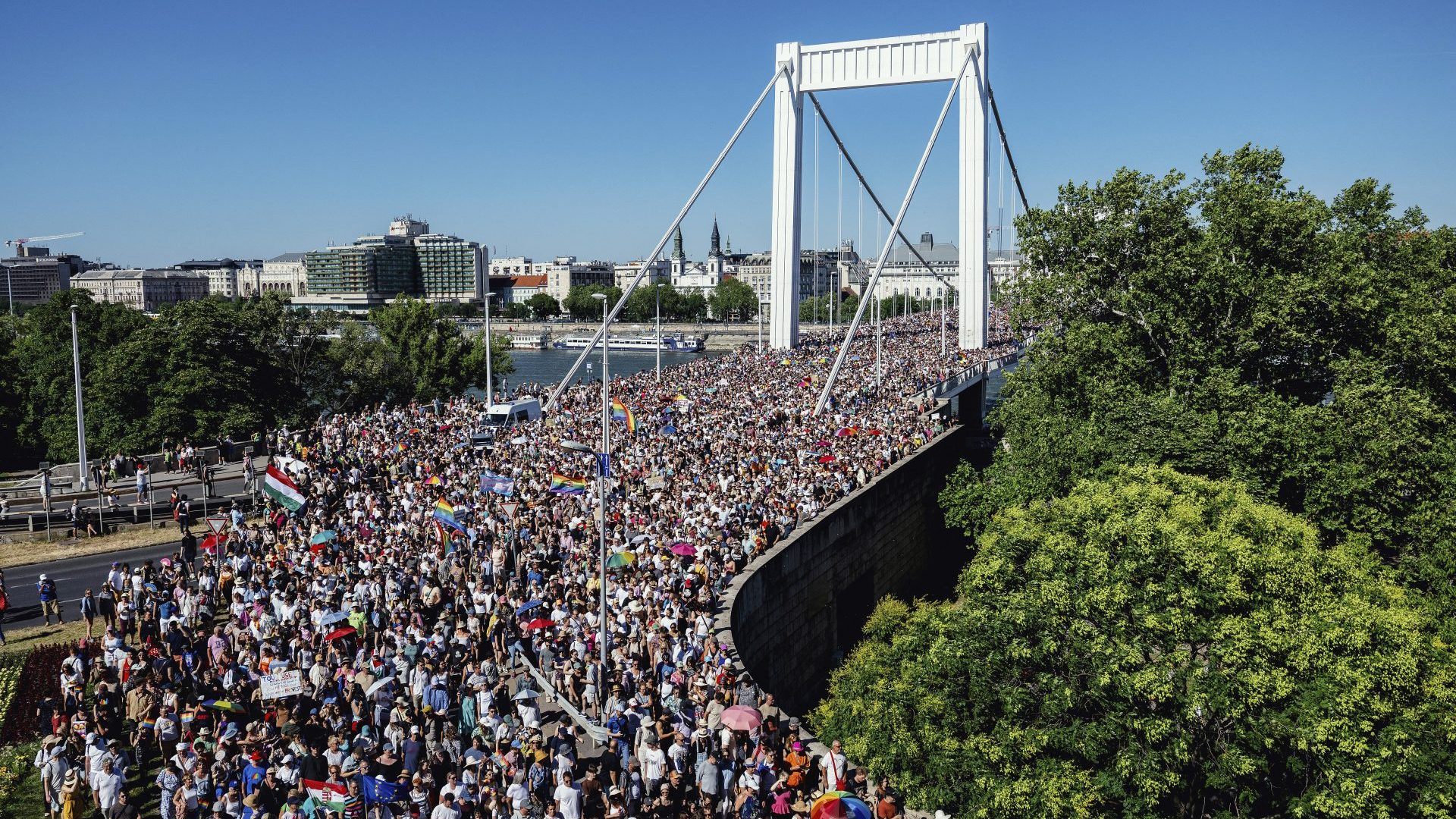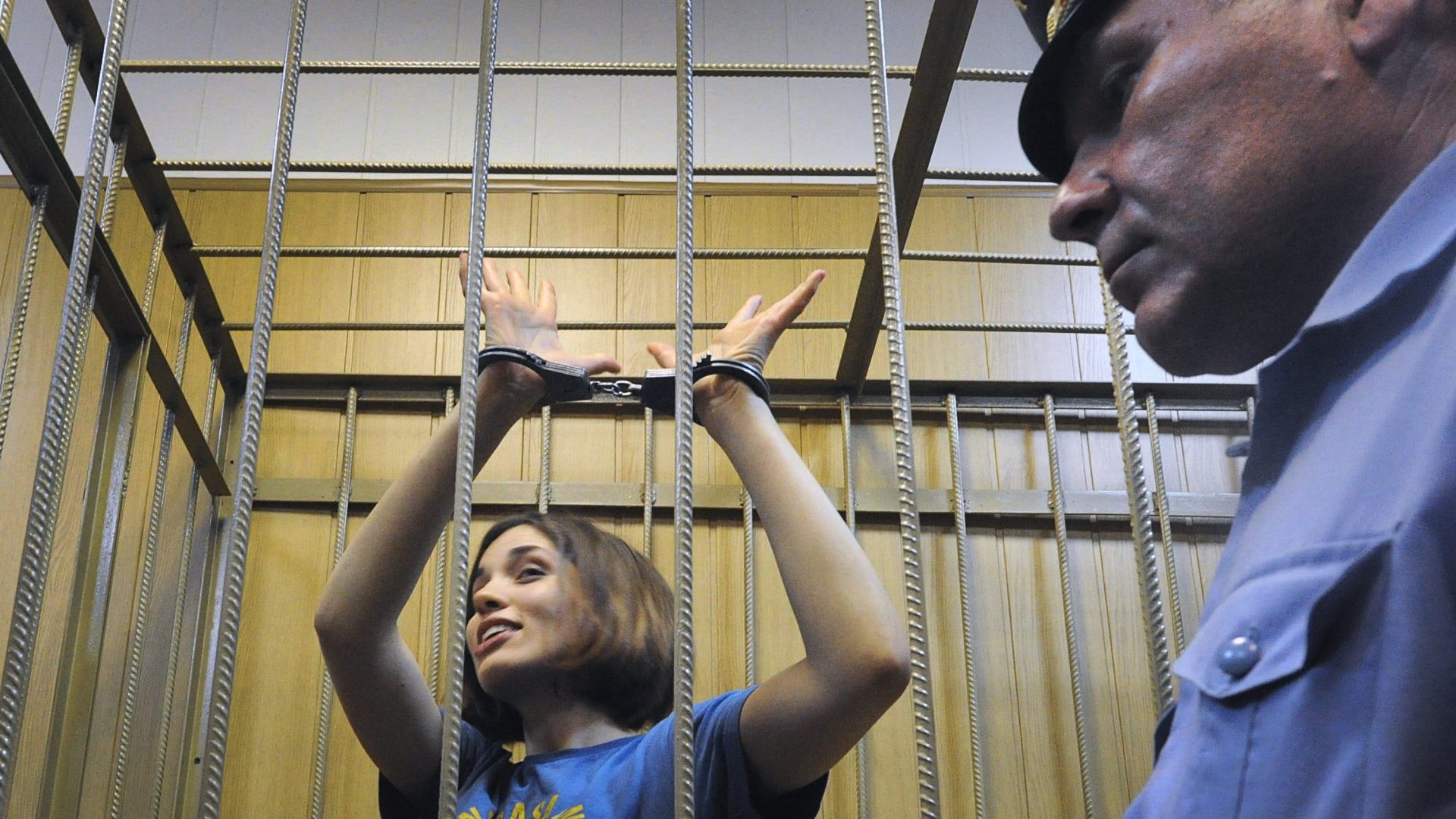“I’ve got better things to do, but I must be here today,” says a sign in front of me as I cross the River Danube in the scorching heat. I am on the Budapest Pride march, somewhere in the middle, but when I turn around I can’t find the end of the crowd. I’ve seen dozens of protests, but rarely, if ever, of this size.
It’s people like the man with the sign, my politically disengaged mother and disappointed conservatives who swell the crowd. Most of them are attending a march for the first time, and they probably wouldn’t be here if it weren’t for prime minister Viktor Orbán’s latest assault on civil rights and the LGBTQ+ community. Thanks to him, we’re all committing a public offence.
In March, a constitutional amendment citing “the primacy of child protection over other fundamental rights” paved the way for Orbán’s government to curb the freedom of assembly by banning pride marches. They also authorised facial recognition technologies at protests, and introduced fines up to £400 for participants who defy the ban.
Using the LGBTQ+ community as a punchbag is an age-old trick for Orbán. In 2021, following the Covid pandemic, which led to the country having the third highest death rate in the world, his government enacted Hungary’s first anti-LGBTQ+ law, which conflated homosexuality with paedophilia, and banned queer representation from sexual education and broadcast media. When the race tightened before the 2022 general election, he announced a “child-protection referendum” on gender-affirming care for minors. The constitution states that there are only two genders, while legal sex change and adoption for same-sex couples is also banned.
Under pressure from opposition leader Péter Magyar’s Tisza party, which has recently polled 15 points ahead of Orbán’s Fidesz, the prime minister attempted not only to drive the news agenda, but to set a trap for Magyar. As centre right Tisza is drawing support from Fidesz’s right wing base, Orbán tried to force his opponent to take sides in the LGBTQ+ debate.
But Orbán miscalculated. Magyar had managed to steer clear of the discussion, and the ban turned Pride into an act of defiance.
Suggested Reading

‘Russia is the enemy, not queer people’
Despite the justice minister threatening him with jail, the city’s liberal mayor Gergely Karácsony stood up to protect Budapest Pride by hosting it as a municipal event, thus exempt from the ban which only applies to protests. Civil rights NGOs also offered legal aid and issued lengthy toolkits to help participants prepare for potential identity checks by the police.
While a violent crackdown was highly unlikely, Orbán did manage to make people hesitate. Some feared the hefty fine. State employees worried about their jobs. There were also concerns of a confrontation with the right wing extremist Mi Hazánk (Our Homeland) party, who blocked a bridge on the path of the march, forcing a detour.
At the peak of his power, Orbán would’ve won this game of chicken, but Hungarians hardly fear his regime any more. An overwhelmingly conservative society chose Pride, the event which polls show as the most divisive, to send him a clear message.
Metro lines were jam-packed and the city centre filled up hours before the event. Seeing the scale of the crowd, conversations about repercussions and escape routes quickly fell away, and hats and sunglasses intended to confuse the surveillance cameras started coming off.
The police could not risk halting the march and fining people en masse. Instead, they stood quietly on the sidelines and kept agitators at bay. Budapest Pride also attracted high-profile guests from abroad, among them more than 70 Members of the European Parliament, the leaders of 13 major European cities including Tom Copley, the deputy mayor of London, and even Greta Thunberg.
“Today, Budapest is the capital of Europe,” said Mayor Karácsony at the end of the march. For the first time in years, Hungary featured in international headlines not for a heinous attack on democracy, but for its return.
Iván Laszlo Nagy is a Hungarian political journalist



